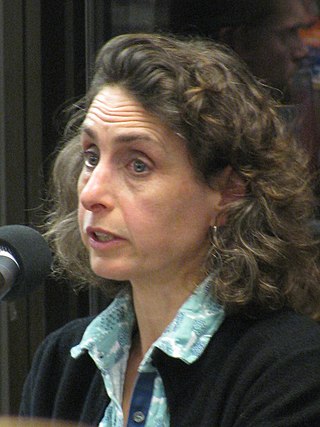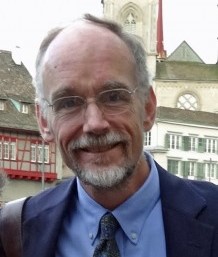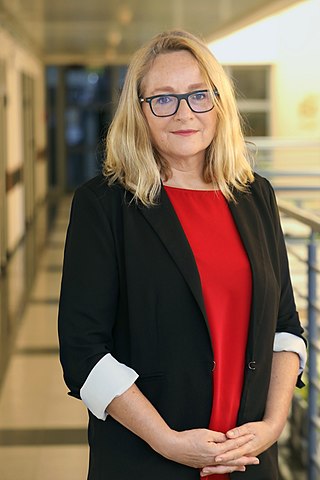Related Research Articles

Stephen Jay Greenblatt is an American literary historian and author. He has served as the John Cogan University Professor of the Humanities at Harvard University since 2000. Greenblatt is the general editor of The Norton Shakespeare (2015) and the general editor and a contributor to The Norton Anthology of English Literature.
American studies or American civilization is an interdisciplinary field of scholarship that examines American literature, history, society, and culture. It traditionally incorporates literary criticism, historiography and critical theory.

Jonathan Safran Foer is an American novelist. He is known for his novels Everything Is Illuminated (2002), Extremely Loud & Incredibly Close (2005), Here I Am (2016), and for his non-fiction works Eating Animals (2009) and We Are the Weather: Saving the Planet Begins at Breakfast (2019). He teaches creative writing at New York University.
David Lehman is an American poet, non-fiction writer, and literary critic, and the founder and series editor for The Best American Poetry. He was a writer and freelance journalist for fifteen years, writing for such publications as Newsweek, The Wall Street Journal, and The New York Times. In 2006, Lehman served as Editor for the new Oxford Book of American Poetry. He taught and was the Poetry Coordinator at The New School in New York City until May 2018.

Philip Stuart Kitcher is a British philosopher who is John Dewey Professor Emeritus of philosophy at Columbia University. He specialises in the philosophy of science, the philosophy of biology, the philosophy of mathematics, the philosophy of literature, and more recently pragmatism.

Parable of the Sower is a 1993 speculative fiction novel by American writer Octavia E. Butler. It is set in a post-apocalyptic Earth heavily affected by climate change and social inequality. The novel follows Lauren Olamina, a young woman who can feel the pain of others and becomes displaced from her home. Several characters from various walks of life join her on her journey north and learn of a religion she has envisioned and titled Earthseed. The main tenets of Earthseed are that "God is Change" and believers can "shape God" through conscious effort to influence the changes around them. Earthseed also teaches that it is humanity's destiny to inhabit other planets and spread the "seeds" of the Earth.
Lawrence Ingalls Buell is Powell M. Cabot Professor of American Literature Emeritus at Harvard University, specialist on antebellum American literature and a pioneer of Ecocriticism. He is the 2007 recipient of the Jay Hubbell Medal for Lifetime Achievement in American Literary studies, the "highest professional award that the American Literature Section of the MLA can give." He won the 2003 Warren-Brooks Award for outstanding literary criticism for his 2003 book on Ralph Waldo Emerson. His Writing for an Endangered World won the 2001 John G. Cawelti Award for the best book in the field of American Culture Studies. He retired from Harvard in 2011.

Elizabeth Kolbert is an American journalist, author, and visiting fellow at Williams College.

Alexander Chee is an American fiction writer, poet, journalist and reviewer.
Michael D. Lemonick is an opinion editor at Scientific American, a former senior staff writer at Climate Central and a former senior science writer at Time.
Leo Braudy is University Professor and Professor of English at the University of Southern California, where he teaches 17th- and 18th-century English literature, film history and criticism, and American culture. He has previously taught at Yale, Columbia, and Johns Hopkins University. He is best known for his cultural studies scholarship on celebrity, masculinity, and film, and is frequently sought after for interviews on popular culture, Hollywood cinema, and the American zeitgeist of the 1950s.

Karl Kirchwey is an American poet, essayist, translator, critic, teacher, arts administrator, and literary curator. His career has taken place both inside and outside of academia. He is Professor of English and Creative Writing at Boston University, where he teaches in the MFA Program in Creative Writing and in the MFA degree program in Literary Translation. His published work includes seven books of poems, two poetry anthologies, and a translation of French poet Paul Verlaine’s first book of poems.
Martin Puchner is a literary critic and philosopher. He studied at Konstanz University, the University of Bologna, and the University of California, Santa Barbara, before receiving his Ph.D. at Harvard University. Until 2009 he held the H. Gordon Garbedian Chair at Columbia University, where he also served as co-chair of the Theater Ph.D. program. He now holds the Byron and Anita Wien Chair of Drama and of English and Comparative Literature at Harvard University. He is the founding director of the Mellon School of Theater and Performance Research at Harvard University.

Leslie Sierra Jamison is an American novelist and essayist. She is the author of the 2010 novel The Gin Closet and the 2014 essay collection The Empathy Exams. Jamison also directs the nonfiction concentration in writing at Columbia University School of the Arts.

Rakesh Satyal is an American novelist, best known for his Lambda Literary Award-winning debut novel Blue Boy. Blue Boy won the 2009 Prose/Poetry Award from the Association of Asian American Studies and was a finalist for the Publishing Triangle's Edmund White Debut Fiction Award and Satyal was a recipient of a 2010 Fellowship in Fiction from the New York Foundation for the Arts.

The Family of Darius Before Alexander is an oil painting on canvas by Paolo Veronese, executed c. 1565–1570. It depicts Alexander the Great with the family of Darius III, the Persian king he had defeated in battle. Although Veronese had previously painted a version of the subject, since destroyed, the theme had rarely been depicted by other artists before him. The painting has been in the collection of the National Gallery in London since 1857.

Climate fiction is literature that deals with climate change. Generally speculative in nature but inspired by climate science, works of climate fiction may take place in the world as we know it, in the near future, or in fictional worlds experiencing climate change. The genre frequently includes science fiction and dystopian or utopian themes, imagining the potential futures based on how humanity responds to the impacts of climate change. Climate fiction typically involves anthropogenic climate change and other environmental issues as opposed to weather and disaster more generally. Technologies such as climate engineering or climate adaptation practices often feature prominently in works exploring their impacts on society.
Ecofiction is the branch of literature that encompasses nature or environment-oriented works of fiction. While this super genre's roots are seen in classic, pastoral, magical realism, animal metamorphoses, science fiction, and other genres, the term ecofiction did not become popular until the 1960s when various movements created the platform for an explosion of environmental and nature literature, which also inspired ecocriticism. Ecocriticism is the study of literature and the environment from an interdisciplinary point of view, where literature scholars analyze texts that illustrate environmental concerns and examine the various ways literature treats the subject of nature. Environmentalists have claimed that the human relationship with the ecosystem often went unremarked in earlier literature.
Gernot Wagner is an Austro-American climate economist at Columbia Business School, where he is a tenured full professor. He holds an AB and a PhD in political economy and government from Harvard University, as well as an MA in economics from Stanford University. A founding co-director of Harvard's Solar Geoengineering Research Program (2017-2019) he joined the faculty of New York University in 2019, moving to Columbia University in 2022. Wagner writes a monthly column for Project Syndicate, and is the co-author, with Martin L. Weitzman, of Climate Shock, a Top 15 Financial Times-McKinsey Business Book of the Year 2015. He won the "Austrian of the Year" award in 2022, awarded by Austrian daily Die Presse.

Milette Shamir is an Israeli academic administrator and professor of American studies serving as vice president of Tel Aviv University.
References
- ↑ " @waicheedimock " on Twitter
- ↑ "Wai Chee Dimock | American Studies".
- ↑ "Wai Chee Dimock | American Studies".
- ↑ "Wai Chee Dimock on living with risk". May 2020.,
- ↑ "Can NASA help save the planet? Yes, with indigenous partners". 9 November 2021.
- ↑ "Wai Chee Dimock - Los Angeles Review of Books". Lareviewofbooks/org. Retrieved 11 August 2017.
- ↑ "What Book Changed Your Mind?". 7 November 2014.
- ↑ Dimock, Wai Chee (7 September 2022). "New-Climate-Fiction-Offers-Visions-for-Environmental-Justice". The New York Times.,
- ↑ "Walt Whitman and the Essence of Opera". The New Yorker. 4 June 2015. Retrieved 11 August 2017.
- ↑ "What AI Can do for Climate Change, and What Climate Change Can do for AI".
{{cite magazine}}: Cite magazine requires|magazine=(help) - ↑ "- Invitation to World Literature". WGBH - Invitation to World Literature. Retrieved 11 August 2017.
- ↑ "Wai Chee Dimock | English".
- ↑ Dimock, Wai-Chee, ed. (31 January 2017). American Literature in the World: An Anthology from Anne Bradstreet to Octavia Butler. Columbia University Press. ISBN 978-0231157377.
- ↑ "Dimock, W. And Buell, L., eds.: Shades of the Planet: American Literature as World Literature. (Paperback)". Archived from the original on 2016-03-30. Retrieved 2016-10-10.
- ↑ "Dimock, W.: Through Other Continents: American Literature across Deep Time. (EBook and Paperback)". Archived from the original on 2016-04-11. Retrieved 2016-10-10.